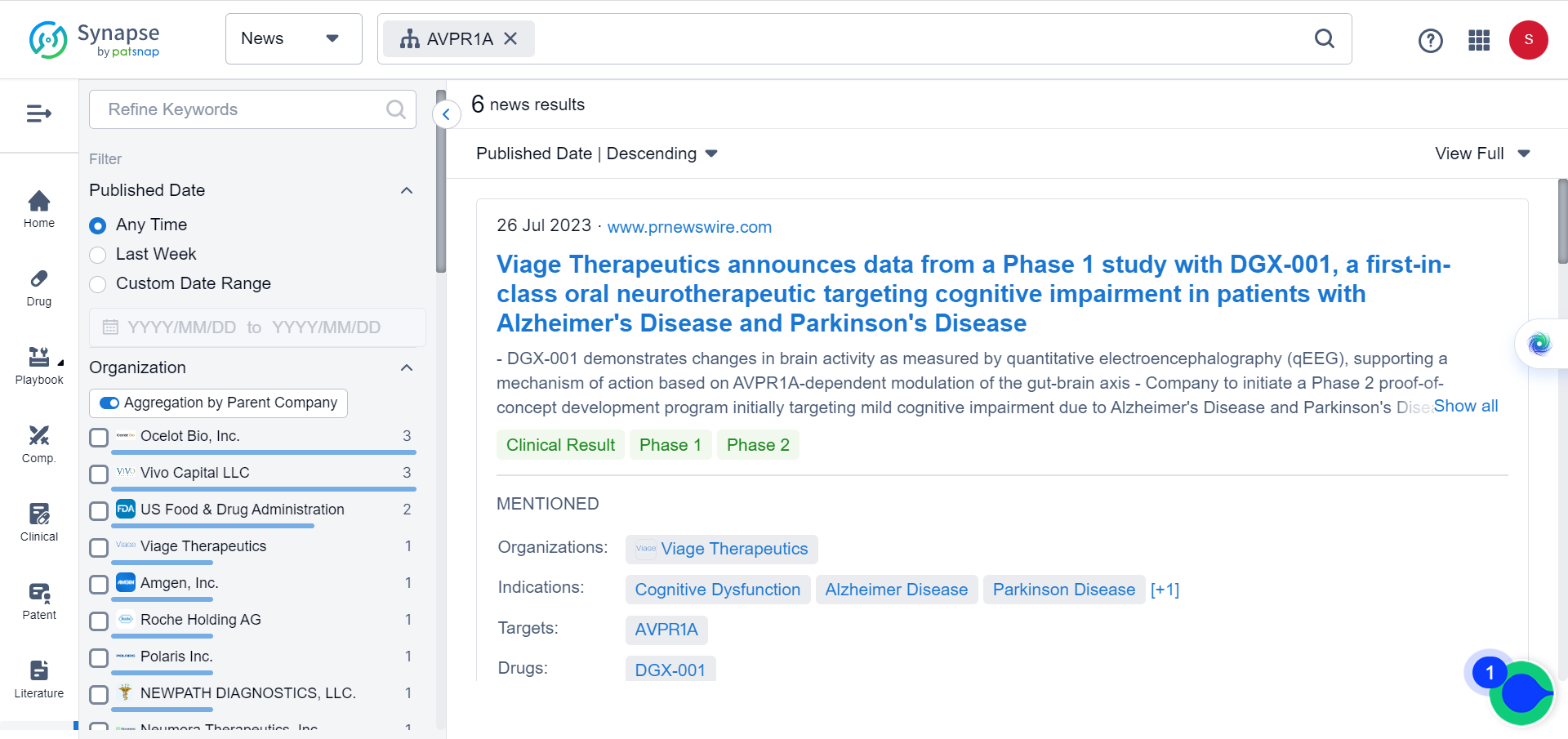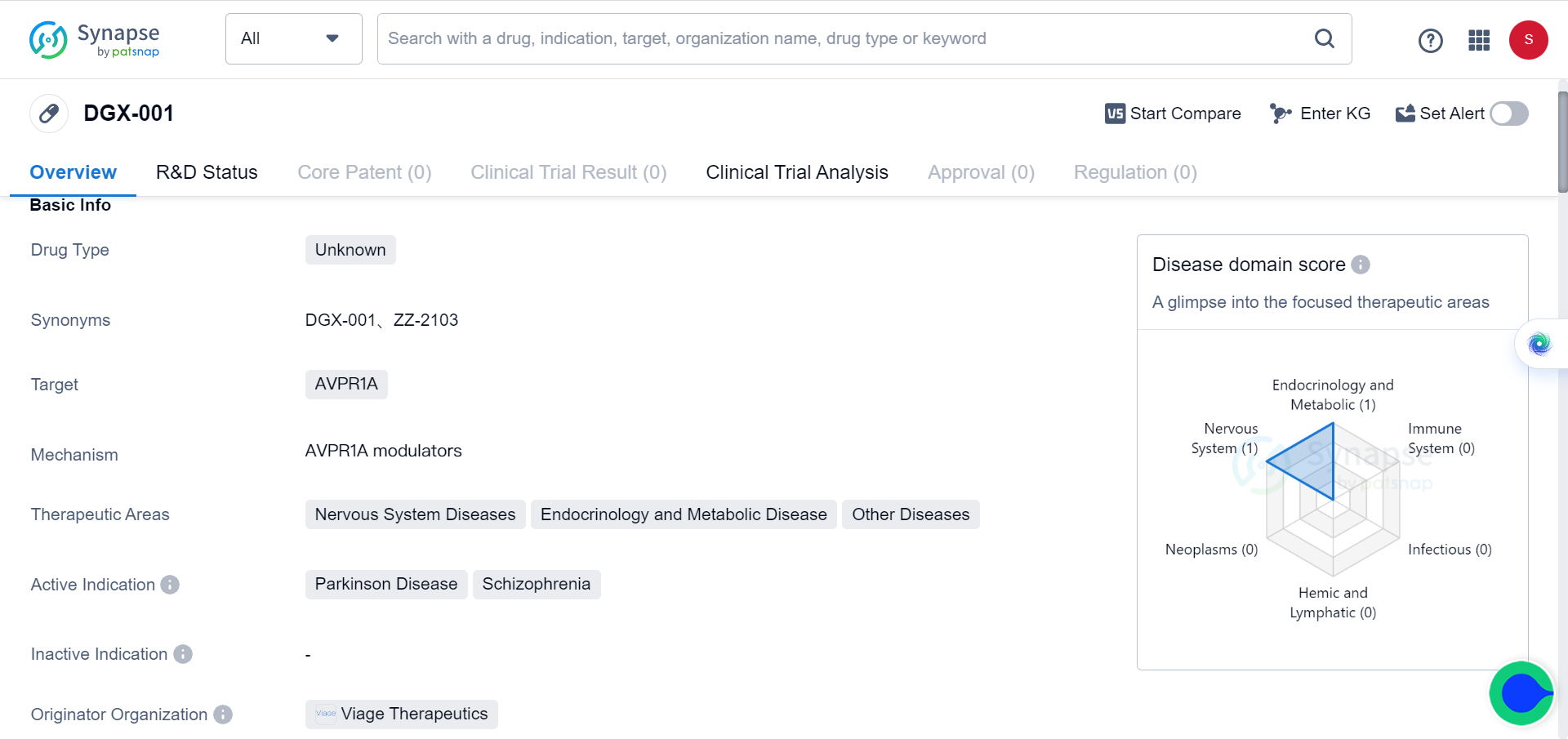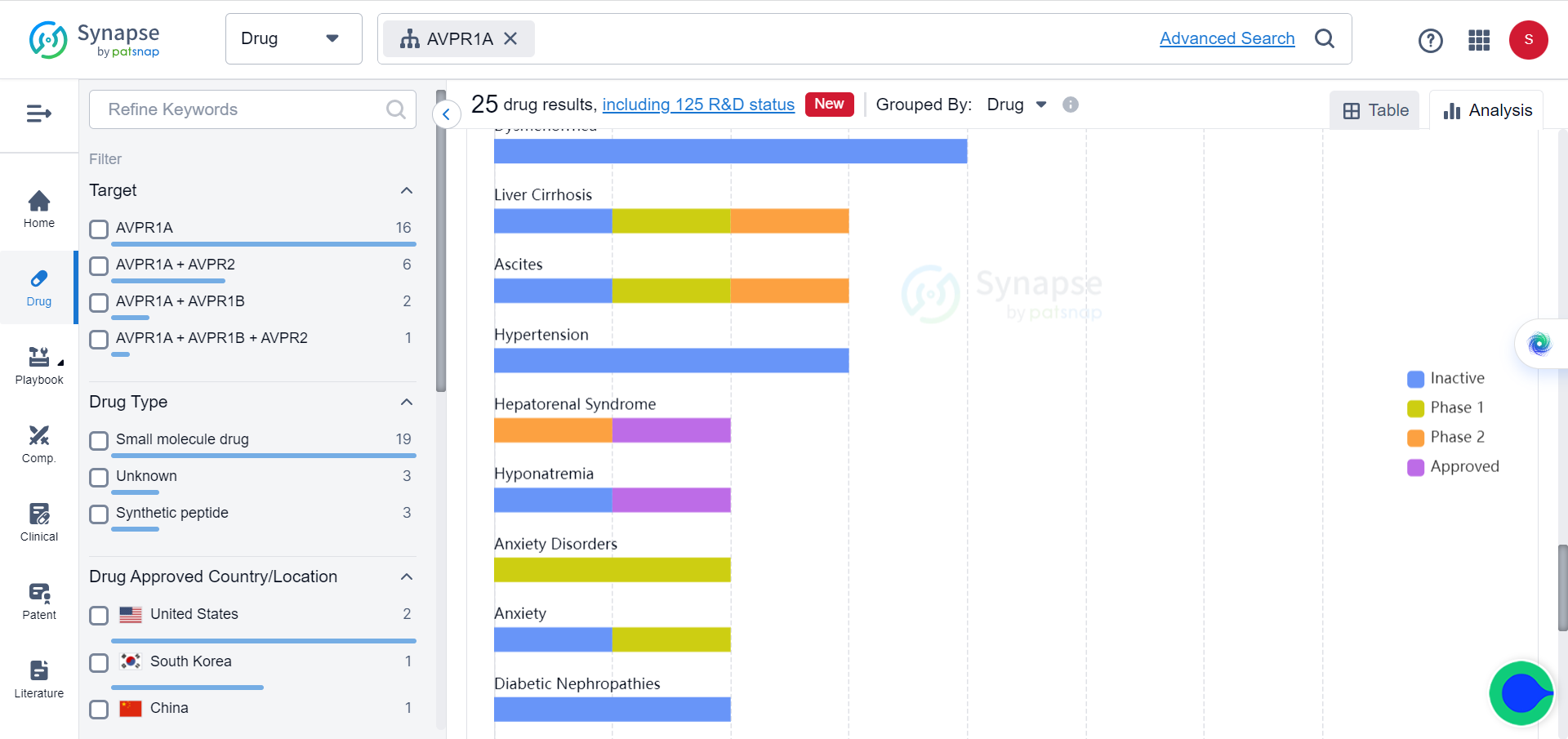Focusing on the gut-brain axis: new opportunities on the horizon for treating Alzheimer and other neurodegenerative diseases
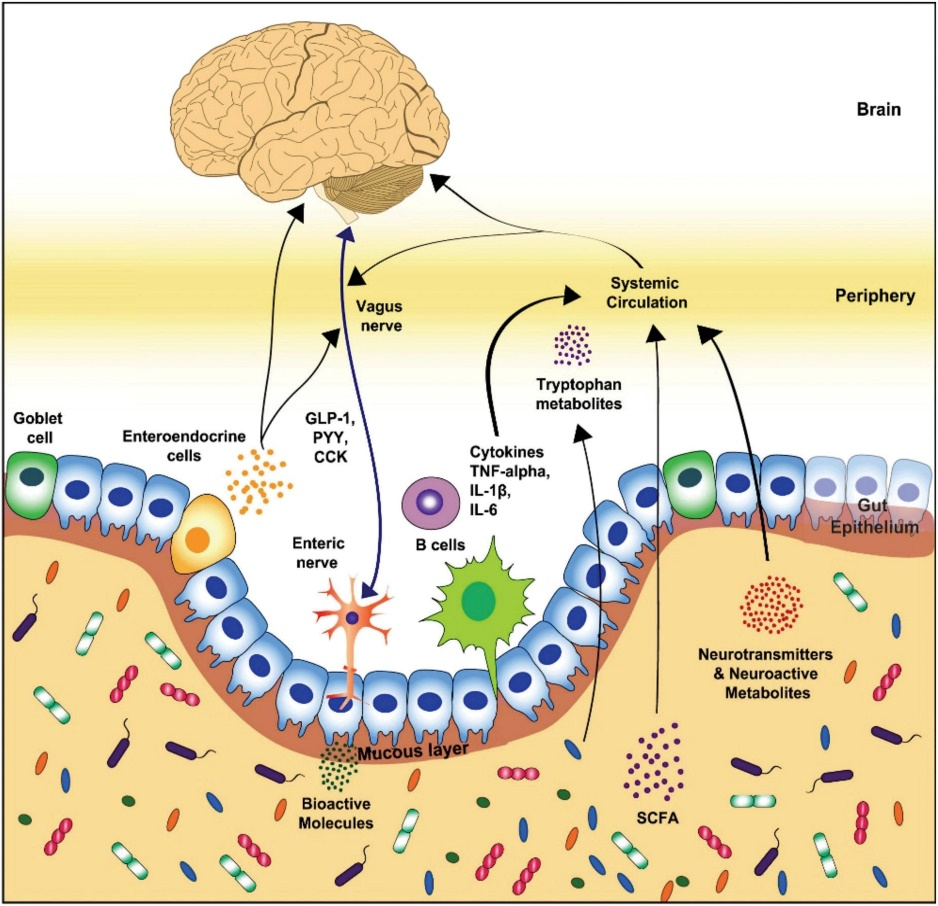
Viage Therapeutics recently announces positive findings from the Phase 1 study with DGX-001, a first-in-class oral neurotherapeutic targeting the AVPR1A receptor in the gut for cognitive impairment in patients with Alzheimer's Disease and Parkinson's Disease. DGX-001 demonstrates changes in brain activity as measured by quantitative electroencephalography (qEEG), supporting a mechanism of action based on AVPR1A-dependent modulation of the gut-brain axis.
AVPR1A and brain functions
In fact, AVPR1A has been implicated in various disorders in the brain. Of the 25 drugs targeting arginine vasopressin receptor 1A (AVPR1A) in the Synapse database, 2 drugs with indications on anxiety disorder are currently in phase 1.
Previously, scientists have uncovered AVPR1A’s role in brain’s cognitive functions. They found genetic variants that impact verbal learning and memory by modulating the gray matter volume (GMV) and resting-state functional connectivity (rsFC) of the hippocampus and its subfields. The study, published in the journal NeuroImage, focused on the effects of the neuropeptide arginine vasopressin (AVP), which is mediated by AVPR1A, on social and non-social learning and memory.
The team tested the hypothesis that genetic variants in the RS3 and RS1 repeat polymorphisms may influence verbal learning and memory performance by modulating the GMV and rsFC of the whole hippocampus and its subfields. They found that individuals carrying more short alleles of RS3-RS1 haplotypes had poorer learning and memory performance compared to those carrying more long alleles. They also revealed that individuals carrying more short alleles exhibited a significantly smaller GMV in the left cornu ammonis (CA)2/3 and weaker rsFC of the left CA2/3-bilateral thalamic (primarily in medial prefrontal subfields) compared to those carrying more long alleles.
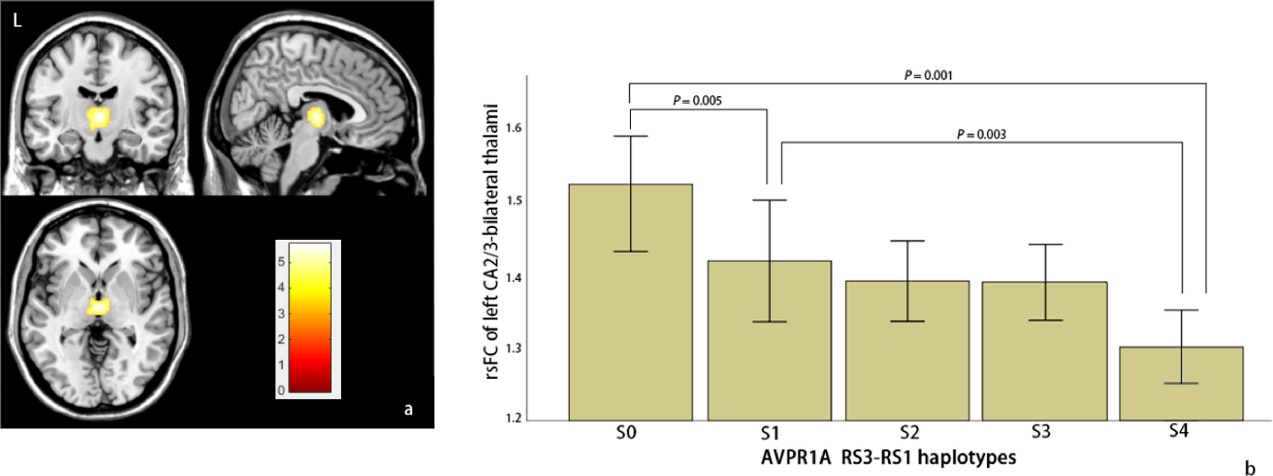
The study was conducted in a large cohort of young healthy subjects (n=1001) and used a short/long classification scheme for the repeat length of RS3 and RS1. Furthermore, multiple mediation analysis confirmed that these two hippocampal imaging measures jointly and fully mediated the relationship between the genetic variants in AVPR1A RS3-RS1 haplotypes and the individual differences in verbal learning and memory performance.
The results suggest that genetic variants in AVPR1A RS3-RS1 haplotypes may affect verbal learning and memory performance in part by modulating the left hippocampal CA2/3 structure and its rsFC with the thalamus. And the findings demonstrate the role of AVPR1A in higher cognitive functions and pave way for subsequent research on disorders such as AD.
Gut-brain axis
Apart from targeting AVPR1A, the latest researching focus on gut-brain axis also represents a novel approach for treating neurological diseases.
Gut microbiota may play a pivotal role in the development and progression of Alzheimer's disease, according to a comprehensive review article published in the journal Mechanisms of Ageing and Development. The study examines the emerging evidence linking alterations in gut microbiome composition and diversity to increased intestinal permeability, blood-brain barrier impairment, neuroinflammation, and the formation of hallmarks of AD, such as amyloid plaques and neurofibrillary tangles.
The researchers posit that further elucidation of the mechanisms of the microbiota-gut-brain axis (MGB) could help predict AD risk and progression, as well as identify potential therapeutic targets. They also suggest that gut microbiota modulation, through interventions such as fecal microbiota transplantation (FMT) or dietary changes, could help alleviate symptoms of AD and reduce the risk of comorbid conditions, such as type 2 diabetes mellitus (T2DM).
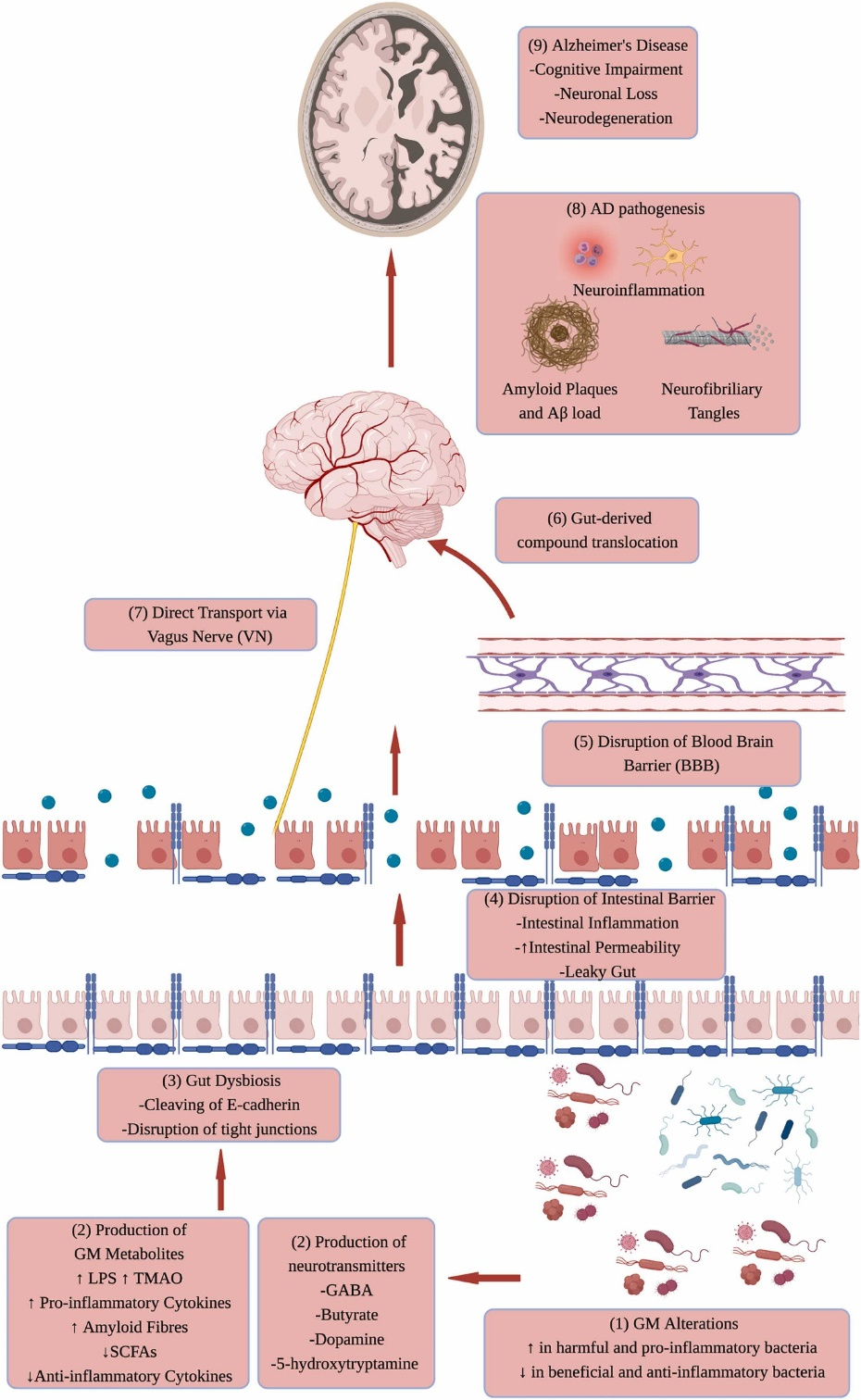
The study provides a comprehensive overview of the current understanding of the gut microbiome, which consists of over 1,000 bacterial species and 7,000 strains. The microbiota can produce metabolites and compounds associated with good health, such as vitamins and immune responses, as well as harmful compounds that can increase gut permeability and trigger inflammation.
By further reviewing the compelling evidence from animal models and human studies, a link between gut dysbiosis and AD has been elicited. For instance, studies have found that AD patients have lower levels of beneficial gut bacteria, such as Bifidobacterium and Lactobacillus, and higher levels of harmful bacteria, such as Escherichia coli and Clostridium difficile. Moreover, the authors suggest that gut-derived compounds, such as lipopolysaccharides and amyloid-beta peptides, can cross the blood-brain barrier and trigger immune responses that contribute to AD pathogenesis.
There are several studies that have explored the therapeutic potential of gut microbiota modulation for AD. Preclinical studies have shown that FMT from healthy donors can improve cognitive function and reduce amyloid plaques in mouse models of AD. Clinical studies have also found that dietary interventions, such as the Mediterranean diet or the ketogenic diet, can improve cognitive function in AD patients.
However, it has to be cautioned that more research is needed to establish the safety and efficacy of gut microbiota-based interventions for AD, as well as to identify the specific bacteria or metabolites that are most relevant to AD pathogenesis. Additionally, precision medicine approaches, such as personalized probiotics or fecal metabolomics, could help tailor interventions to individual patients based on their gut microbiota profiles and AD risk factors.
The promising findings of DGX-001 Phase 1 study, coupled with the emerging understanding of the gut-brain axis, highlight new avenues for developing a cure for Alzheimer's and other neurological disorders.
References:
1.L K, Ng TKS, Wee HN, Ching J. Gut-brain axis through the lens of gut microbiota and their relationships with Alzheimer's disease pathology: Review and recommendations. Mech Ageing Dev. 2023 Apr;211:111787.
2.Zhang Y, Zhu D, Zhang P, Li W, Qin W, Liu F, et al. Neural mechanisms of AVPR1A RS3-RS1 haplotypes that impact verbal learning and memory. Neuroimage. 2020;222:117283.
